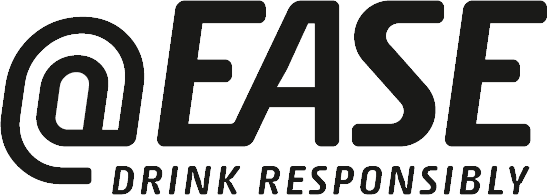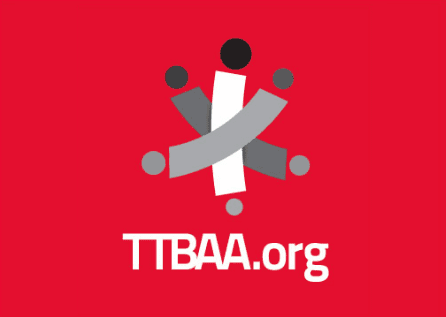

Our commitment to inspiring responsible lifestyles 
Being the Caribbean’s leading beverage brand over the last 70 years and having a growing presence in the international market, we at CARIB Brewery Limited feel a deep sense of obligation to all consumers, to inspire responsible enjoyment of our products at all times, everywhere. Therefore, we have committed a great deal towards campaigns that promote safe consumption in the best interest and well-being of all.
How we encourage responsible consumption
One such campaign is @EASE (AT EASE). It embodies the idea that, as our Carib brand expresses the fun, energy and happiness that flows naturally through all Caribbean people in ‘the way we play’, there is also the sense of cool ease with which we enjoy life that also defines us and gives us balance. Therefore, by practising this balance, with each person consuming Carib responsibly, we all put each others’ minds ‘at ease’, to enjoy the best of good times together. This ‘ease' is what we at CARIB Brewery desire to promote as a friendly, key guiding principle by which everyone enjoys their favourite Carib brand responsibly.
Our symbol of responsibility
With this thinking behind our responsibility campaign, our communication on all media, merchandising and social platforms, will have an @EASE symbol as the signature of our commitment to inspiring everyone to responsibly enjoy Carib, anytime, anywhere.
Playing @EASE in our promotions and partnerships
Whether it be the Caribbean’s exciting T-20 CPL cricket, Carnivals at home and abroad, or with our several partners in various other events and activities, we ensure that our @EASE message is always present to help our consumers enjoy the Carib brand responsibly.

As an ambassador for responsible alcohol consumption, we are proud to be one of the founding members of the Trinidad & Tobago Beverage Alcohol Alliance (TTBAA).
The TTBAA is a non-profit association of beverage alcohol producers, distributors and marketers whose core objective is to promote the responsible distribution, sale and consumption of beverage alcohol products. The TTBAA represents the suppliers of beverage alcohol products in Trinidad and Tobago and includes the largest brewery, distillery and distribution houses in the country.


Ways to enjoy consumption @EASE
Some Questions to help you enjoy your brew @EASE
(Reference: Centres for Disease Control and Prevention
https://www.cdc.gov/alcohol/faqs.htm)
What is alcohol?
Ethyl alcohol, or ethanol, is an intoxicating ingredient found in beer, wine, and liquor. Alcohol is produced by the fermentation of yeast, sugars, and starches.
Why do some people react differently than others?
Alcohol affects every organ in the body. It is a central nervous system depressant that is rapidly absorbed from the stomach and small intestine into the bloodstream. Alcohol is metabolized in the liver by enzymes. However, the liver can only metabolize a small amount of alcohol at a time, leaving the excess alcohol to circulate throughout the body. The intensity of the effect of alcohol on the body is directly related to the amount consumed.
Is beer safer to drink than wine or liquor?
No. One 12-ounce beer has about the same amount of alcohol as one 5-ounce glass of wine or 1.5-ounce shot of liquor. It is the amount of alcohol consumed that affects a person most, not the type of alcoholic drink.
What does moderate drinking mean?
Adults of legal drinking age can choose not to drink, or to drink in moderation by limiting intake to 2 drinks or less in a day for men and 1 drink or less in a day for women, when alcohol is consumed. Drinking less is better for health than drinking more.
What is excessive alcohol use?
Excessive alcohol use includes binge drinking, heavy drinking, any alcohol use by people under the age 21 minimum legal drinking age, and any alcohol use by pregnant women.
What health problems are associated with excessive alcohol use?
Excessive drinking both in the form of heavy drinking or binge drinking, is associated with numerous health problems,6including
- Chronic diseases such as liver cirrhosis (damage to liver cells); pancreatitis (inflammation of the pancreas); various cancers, including liver, mouth, throat, larynx (the voice box), and esophagus; high blood pressure; and psychological disorders.
- Unintentional injuries, such as motor-vehicle traffic crashes, falls, drowning, burns, and firearm injuries.
- Violence, such as child maltreatment, homicide, and suicide.
- Harm to a developing fetus if a woman drinks while pregnant, such as fetal alcohol spectrum disorders.
- Sudden infant death syndrome (SIDS).
- Alcohol use disorders.
Is it safe to drink and drive?
No. Alcohol use slows reaction time and impairs judgment and coordination, which are all skills needed to drive a car safely.2The more alcohol consumed, the greater the impairment.
How do I know if I have a drinking problem?
Drinking is a problem if it causes trouble in your relationships, in school, in social activities, or in how you think and feel. If you are concerned that either you or someone in your family might have a drinking problem, consult your personal health care provider.
What can I do if someone I know has a drinking problem?
Consult your personal health care provider if you feel you or someone you know has a drinking problem. Other resources include the National Drug and Alcohol Treatment Referral Routing Service, available at 1-800-662-HELP. This service can provide you with information about treatment programs in your local community and allow you to speak with someone about alcohol problems.




